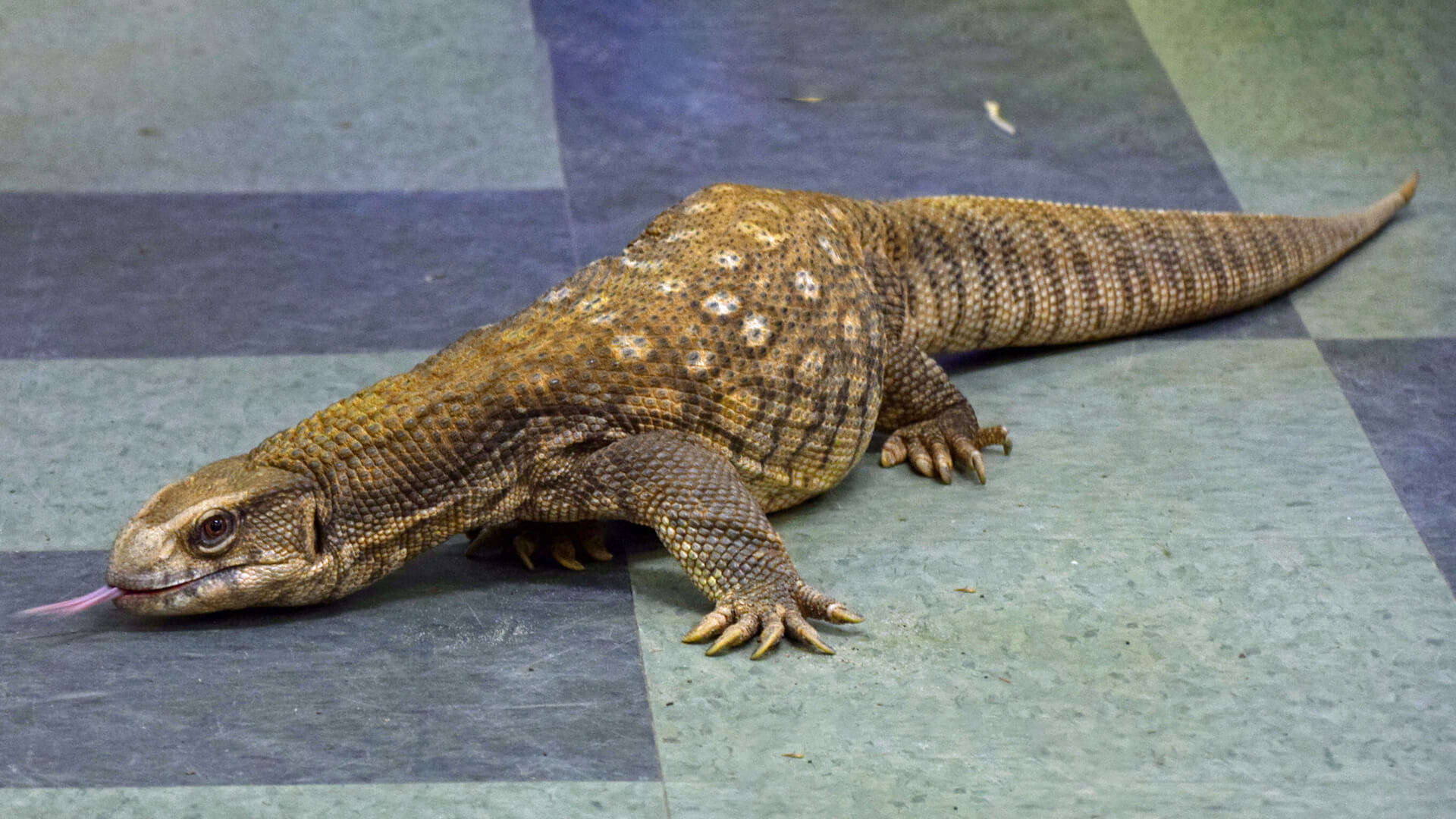Savannah Monitor Lizard Care: A Complete Guide

Savannah Monitor Lizard Care: A Complete Guide. Discover more detailed and exciting information on our website. Click the link below to start your adventure: Visit Best Website. Don't miss out!
Table of Contents
Savannah Monitor Lizard Care: A Complete Guide for Aspiring Reptile Keepers
Savannah monitor lizards ( Varanus exanthematicus) are captivating creatures, known for their striking appearance and intelligent personalities. Their popularity as exotic pets is rising, but responsible ownership requires extensive knowledge and commitment. This comprehensive guide will equip aspiring keepers with the essential information for providing optimal Savannah monitor lizard care. Ignoring these crucial aspects can lead to significant health problems and a drastically shortened lifespan for these magnificent reptiles.
Understanding Savannah Monitor Lizard Needs: Habitat and Enclosure Setup
Before bringing a Savannah monitor home, meticulous planning is crucial. These active lizards require a spacious enclosure to thrive. A minimum enclosure size of 6 feet long, 4 feet wide, and 4 feet high is recommended for a single adult, with larger enclosures being preferable. Consider the following when setting up their habitat:
-
Substrate: Choose a substrate that's easy to clean and won't be ingested by the lizard, such as reptile carpet, tile, or newspaper. Avoid substrates like sand or loose wood chips, which present ingestion and impaction risks.
-
Temperature Gradient: Maintaining a proper temperature gradient is vital. Provide a basking spot with temperatures reaching 100-110°F (38-43°C) using a high-quality heat lamp. Ambient temperatures should range from 80-90°F (27-32°C) during the day and slightly lower at night. A reliable thermometer is essential for monitoring temperatures.
-
UVB Lighting: Savannah monitors require UVB radiation for proper calcium absorption and overall health. Use a high-output UVB bulb, ensuring it’s the correct distance from the basking spot to prevent burns.
-
Hiding Places: Provide multiple hiding places for your lizard to feel secure. Use caves, branches, or commercially available reptile hides. This reduces stress levels significantly.
Diet and Nutrition: Fueling a Healthy Savannah Monitor
A well-balanced diet is paramount for a healthy Savannah monitor. These lizards are carnivorous, with a varied diet being key to preventing nutritional deficiencies. Their diet should consist primarily of:
- Insects: Crickets, roaches (dubia roaches are recommended), and mealworms (in moderation).
- Rodents: Pinkies and fuzzies (baby mice and rats) can be offered occasionally, as part of a varied diet, especially for larger adults.
- Meat: Small pieces of lean meat, such as chicken or beef, can be offered sparingly.
Important Note: All prey items should be appropriately sized and gut-loaded (fed nutritious food before being offered to the lizard) to ensure optimal nutritional value. Supplement your lizard’s diet with calcium and vitamin D3 powder regularly.
Health and Handling: Preventing and Addressing Potential Issues
Regular veterinary check-ups are crucial for maintaining your Savannah monitor's health. Early detection of potential problems is essential for effective treatment. Common health issues include:
- Metabolic Bone Disease (MBD): Caused by calcium and vitamin D3 deficiency.
- Parasites: Regular fecal examinations are recommended to detect and treat parasitic infections.
- Injuries: Savannah monitors can be quite powerful, so handle them with care.
Avoid overhandling, particularly during the initial acclimation period. Gentle handling and building trust through positive interactions are essential for a strong bond.
Choosing a Healthy Savannah Monitor: Finding Your Perfect Reptile Companion
Choosing a healthy Savannah monitor is the first step in ensuring a long and fulfilling life for your reptile. Look for a lizard that is:
- Alert and Active: A healthy Savannah monitor will be active and responsive to its environment.
- Clear Eyes and Skin: The eyes should be clear and bright, and the skin should be smooth and free from lesions.
- Good Body Condition: The lizard should have a healthy weight and body condition, with no signs of emaciation or obesity.
Purchase your Savannah monitor from a reputable breeder who can provide documentation on the lizard's health and lineage. Avoid impulse purchases and thoroughly research before bringing one home.
Conclusion: Embracing the Commitment of Savannah Monitor Lizard Ownership
Owning a Savannah monitor lizard is a significant responsibility. By following this guide and understanding their specific needs, you can provide your reptile with a thriving environment, ensure their well-being, and enjoy many years of companionship with this fascinating creature. Remember to always consult with a qualified reptile veterinarian for any health concerns. Are you ready to take on this rewarding challenge? Start your research now and prepare for the enriching experience of Savannah monitor ownership!

Thank you for visiting our website wich cover about Savannah Monitor Lizard Care: A Complete Guide. We hope the information provided has been useful to you. Feel free to contact us if you have any questions or need further assistance. See you next time and dont miss to bookmark.
Featured Posts
-
 Brisbane Afl Legend Troy Selwood Passes Away At 40 Remembering A Champion
Feb 05, 2025
Brisbane Afl Legend Troy Selwood Passes Away At 40 Remembering A Champion
Feb 05, 2025 -
 Pokemon Tcg Pocket Trading System Is It Really That Bad
Feb 05, 2025
Pokemon Tcg Pocket Trading System Is It Really That Bad
Feb 05, 2025 -
 Controversy Erupts Sen Parts Ways With Peter Lalor Over Gaza Views
Feb 05, 2025
Controversy Erupts Sen Parts Ways With Peter Lalor Over Gaza Views
Feb 05, 2025 -
 Kendall Jenner Net Worth Assets And Business Ventures
Feb 05, 2025
Kendall Jenner Net Worth Assets And Business Ventures
Feb 05, 2025 -
 Find The Precise Time In Boston
Feb 05, 2025
Find The Precise Time In Boston
Feb 05, 2025
